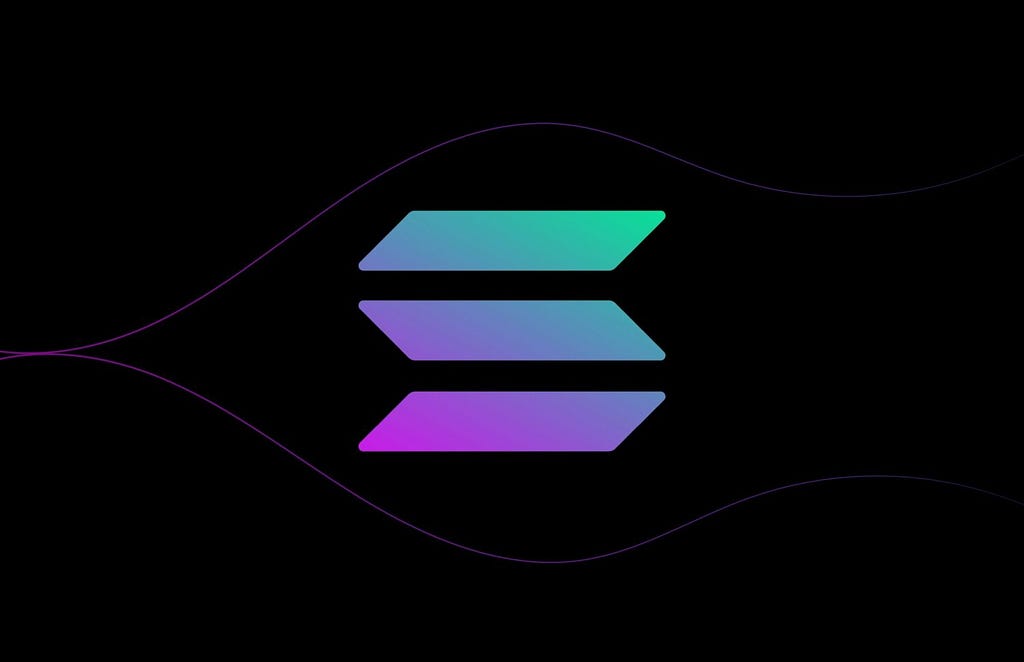
As businesses increasingly explore blockchain technology, Solana has emerged as a leading platform due to its unique features that promise speed, scalability, and security. This blog will delve into why Solana is considered the blockchain of the future, making it an attractive option for enterprises looking to adopt blockchain solutions.
Understanding Solana
Solana is a high-performance blockchain designed to support decentralized applications (dApps) and crypto projects. It utilizes a unique consensus mechanism called Proof of History (PoH) combined with Proof of Stake (PoS), which significantly enhances its transaction speed and overall efficiency. This innovative approach allows Solana to process thousands of transactions per second (TPS), making it one of the fastest blockchains available today.
Key Features of Solana
1. Speed: Solana can handle approximately 65,000 TPS, which is dramatically higher than many other blockchains like Ethereum, which typically processes between 15–45 TPS. This speed is crucial for applications requiring real-time data processing and quick transaction confirmations.
2. Scalability: The architecture of Solana allows it to scale without compromising performance. As the network grows, it can maintain high throughput by adding more nodes, ensuring that it can handle increased demand without slowing down.
3. Security: Security is paramount in blockchain technology. Solana’s network is validated by thousands of independent nodes, which enhances its resistance to attacks and ensures data integrity.
The Importance of Speed in Blockchain
In today’s fast-paced digital economy, speed is essential for user satisfaction and operational efficiency. Businesses that rely on real-time transactions — such as financial services, gaming, and supply chain management — benefit significantly from a blockchain that can process transactions quickly.
Solana’s rapid transaction speeds allow businesses to build applications that require instant interactions. For instance, in decentralized finance (DeFi), users can execute trades or swaps almost instantaneously, which is vital for maintaining competitive advantage in volatile markets.
Scalability: A Game Changer for Businesses
Scalability refers to a blockchain’s ability to grow and accommodate increasing numbers of transactions without performance degradation. Traditional blockchains often face challenges when scaling due to their architecture and consensus mechanisms.
Solana’s innovative design allows it to scale efficiently. Its ability to handle thousands of transactions simultaneously means that businesses can grow their user base without worrying about network congestion or high transaction fees. This feature makes Solana particularly appealing for startups and enterprises looking to launch large-scale applications.
Real-World Applications
1. Decentralized Finance (DeFi): Solana has become a popular choice for DeFi applications due to its speed and low transaction costs. Platforms built on Solana can offer users quick access to lending, borrowing, and trading services.
2. Non-Fungible Tokens (NFTs): The NFT marketplace has exploded in popularity, and Solana provides a robust platform for minting and trading NFTs at a fraction of the cost compared to Ethereum-based platforms.
3. Gaming: With the rise of play-to-earn models, gaming platforms built on Solana can offer seamless experiences with minimal latency, attracting more players.
Security Considerations in Blockchain Development
Security remains a critical concern for any business considering blockchain technology. The decentralized nature of blockchains inherently provides some level of security; however, additional measures are necessary to protect against vulnerabilities.
Solana’s architecture includes several layers of security:
Decentralization: The network’s validation by numerous independent nodes reduces the risk of central points of failure.
Smart Contract Audits: Businesses developing on Solana should prioritize smart contract audits to identify potential vulnerabilities before deployment.
Community Support: A strong developer community contributes to ongoing security improvements and updates.
Cost Efficiency: A Competitive Advantage
One significant advantage of using Solana is its low transaction fees. With an average cost per transaction around $0.000025, businesses can operate at lower overheads compared to other platforms where fees can escalate quickly during peak times. This cost efficiency allows companies to allocate resources more effectively while scaling their operations.
What makes Solana’s speed and scalability stand out compared to other blockchains
Solana’s speed and scalability set it apart from other blockchains, making it an attractive option for developers and businesses. Here are the key factors that contribute to Solana’s exceptional performance:
Unique Consensus Mechanism: Proof of History (PoH)
Solana employs a groundbreaking consensus mechanism known as Proof of History (PoH), which enhances transaction processing efficiency. Unlike traditional blockchains that rely solely on Proof of Work (PoW) or Proof of Stake (PoS), PoH timestamps transactions before they are included in a block. This method allows validators to order transactions without complex calculations, significantly reducing the time needed for transaction validation and increasing throughput.
High Transaction Throughput
Solana can process up to 65,000 transactions per second (TPS), far exceeding the capabilities of many other blockchains like Ethereum, which typically handles between 15 and 45 TPS. This high throughput is achieved through several mechanisms:
Parallel Processing: Solana’s architecture allows multiple transactions to be processed simultaneously, rather than sequentially. This parallelization is facilitated by the Sealevel runtime, which enables concurrent execution of smart contracts.
Block Generation Speed: Solana generates a new block approximately every 400 milliseconds, allowing for rapid transaction confirmations and minimal latency.
Low Transaction Costs
The efficiency of Solana’s consensus mechanism translates into extremely low transaction fees, averaging around $0.000025 per transaction. This cost-effectiveness makes Solana particularly appealing for applications that require high transaction volumes, such as decentralized finance (DeFi) platforms and non-fungible token (NFT) marketplaces.
Energy Efficiency
In an era where environmental sustainability is crucial, Solana’s design is energy-efficient compared to traditional blockchains that rely on energy-intensive PoW mechanisms. The PoH consensus does not require significant computational power, resulting in lower energy consumption and a reduced carbon footprint.
Advanced Network Architecture
Solana’s architecture incorporates several features that enhance its scalability:
Gulf Stream: This mempool management system allows transactions to be executed before they are finalized by validators, reducing wait times and minimizing network congestion.
Horizontal Scaling: Solana’s infrastructure supports horizontal scaling, enabling the network to handle increasing loads without degradation in performance. This adaptability is crucial for maintaining high throughput as user demand grows.
Robust Ecosystem
The growing ecosystem surrounding Solana further enhances its appeal. With a multitude of decentralized applications (dApps) being developed across various sectors — including finance, gaming, and digital assets — Solana has established itself as a versatile platform that can support diverse use cases while maintaining speed and scalability.
Earn up to $1000 in bonus when you Click Here and Sign Up for a trading account on MEXC exchange
Solana stands out as a promising blockchain platform due to its exceptional speed, scalability, and security features. As businesses look toward adopting blockchain solutions, understanding these attributes becomes essential in making informed decisions about development platforms.
For companies seeking to harness the power of Solana for their projects, partnering with experienced development teams is crucial. Codezeros offers specialized Solana development services, helping businesses create tailored solutions that leverage the unique capabilities of this innovative blockchain platform.
Get started today with Codezeros — your partner in navigating the future of blockchain development on Solana!
Why Solana Is the Blockchain of the Future: Speed, Scalability, and Security was originally published in Cryptocurrency Scripts on Medium, where people are continuing the conversation by highlighting and responding to this story.








